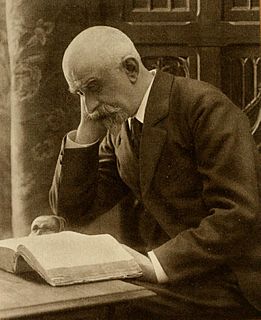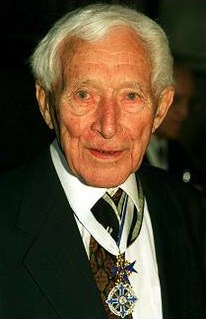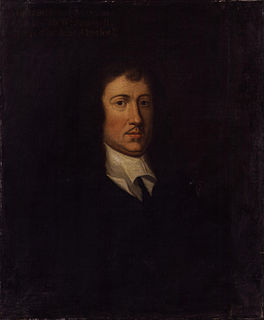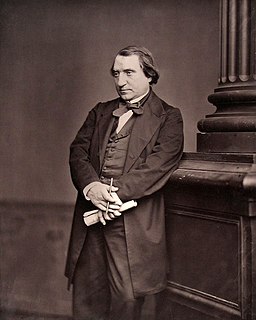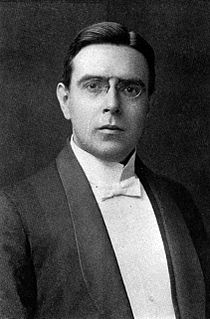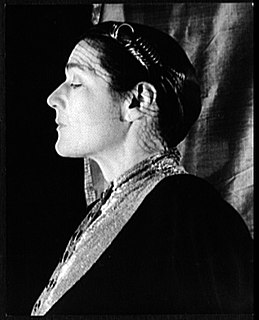A Quote by Francois Rabelais
According to true military art, one should never push one's enemy to the point of despair, because such a state multiplies his strength and increases his courage which had already been crushed and failing, and because there is no better remedy for the health of beaten and overwhelmed men than the absence of all hope.
Related Quotes
He ran as he'd never run before, with neither hope nor despair. He ran because the world was divided into opposites and his side had already been chosen for him, his only choice being whether or not to play his part with heart and courage. He ran because fate had placed him in a position of responsibility and he had accepted the burden. He ran because his self-respect required it. He ran because he loved his friends and this was the only thing he could do to end the madness that was killing and maiming them.
He who accepts life for what it is and never allows himself to be overwhelmed by it does not need to seek refuge for his crushed self-confidence in the solace of a 'saving lie'. If the longed-for success is not forthcoming, if the vicissitudes of fate destroy in the twinkling of an eye what had to be painstakingly built up by years of hard work, then he simply multiplies his exertions. He can look disaster in the eye without despairing.
The fact, however, to which I want to call attention is that the master of Judo never relies upon his own strength. He scarcely uses his own strength in the greatest emergency. Then what does he use? Simply the strength of his antagonist. The force of the enemy is the only means by which that enemy is overcome.
In this game he had acquired a great deal of muddled knowledge, more than one approximation and less than one certitude. And absence of energy, a curiosity that was too sharp to be crushed immediately, a lack of order in his ideas, a weakening of his spiritual boundaries, which were promptly twisted, an excessive passion for running along forked roads and wearying of the path as soon as he had started on it, mental indigestion demanding varied dishes, quickly tiring of the foods he desired, digesting almost all, but badly, was his state.
What is courage? This courage will not be the opposite of despair. We shall often be faced with despair, as indeed every sensitive person has been during the last several decades in this country. Hence Kierkegaard and Nietzsche and Camus and Sartre have proclaimed that courage is not the absence of despair; it is, rather, the capacity to move ahead in spite of despair.
Every man is rich or poor according to the proportion between his desires and his enjoyments; any enlargement of wishes is therefore equally destructive to happiness with the diminution of possession, and he that teaches another to long for what he never shall obtain is no less an enemy to his quiet than if he had robbed him of part of his patrimony
And government (to define it de facto, or according to modern prudence) is an art whereby some man, or some few men, subject a city or a nation, and rule it according to his or their private interest; which, because the laws in such cases are made according to the interest of a man, or of some few families, may be said to be the empire of men, and not of laws.
Those who know how close the connection is between the state of mind of a man-his courage and hope, or lack of them-and the state of immunity of his body will understand that the sudden loss of hope and courage can have a deadly effect. The ultimate cause of my friend's death was that the expected liberation did not come and he was severely disappointed.
Many men without morals have attacked religion because it was contrary to their inclinations. Many wise men have despised it because it seemed to them ridiculous. Many persons have regarded it with indifference, because they have never felt its true disadvantages. But it is as a citizen that I attack it, because it seems to me harmful to the happiness of the state, hostile to the march of the mind of man, and contrary to sound morality, from which the interests of state policy can never be separated.
It is marriage, perhaps, which had given man the best of his freedom, given him his little kingdom of his own within the big kingdom of the state.... It is a true freedom because it is a true fulfilment, for man, woman and children. Do we then want to break marriage? If we do break it, it means we all fall to a far greater extent under the direct sway of the State.
Never has any one been less a priest than Jesus, never a greater enemy of forms, which stifle religion under the pretext of protecting it. By this we are all his disciples and his successors; by this he has laid the eternal foundation-stone of true religion; and if religion is essential to humanity, he has by this deserved the Divine rank the world has accorded him.
It is a truism that as long as man loves but himself and his art he can never attain to the full measure of manhood or reach the sublimest heights of his art. He must seek to love men as brothers and art, not for the sake of art itself, but art as a means toward bringing all men up to that verdant plateau where their souls may be fed in very rejoicing in all that is true, beautiful, and abiding.
Crushed to earth and rising again is an author's gymnastic. Once he fails to struggle to his feet and grab his pen, he will contemplate a fact he should never permit himself to face: that in all probability books have been written, are being written, will be written, better than anything he has done, is doing, or will do.




